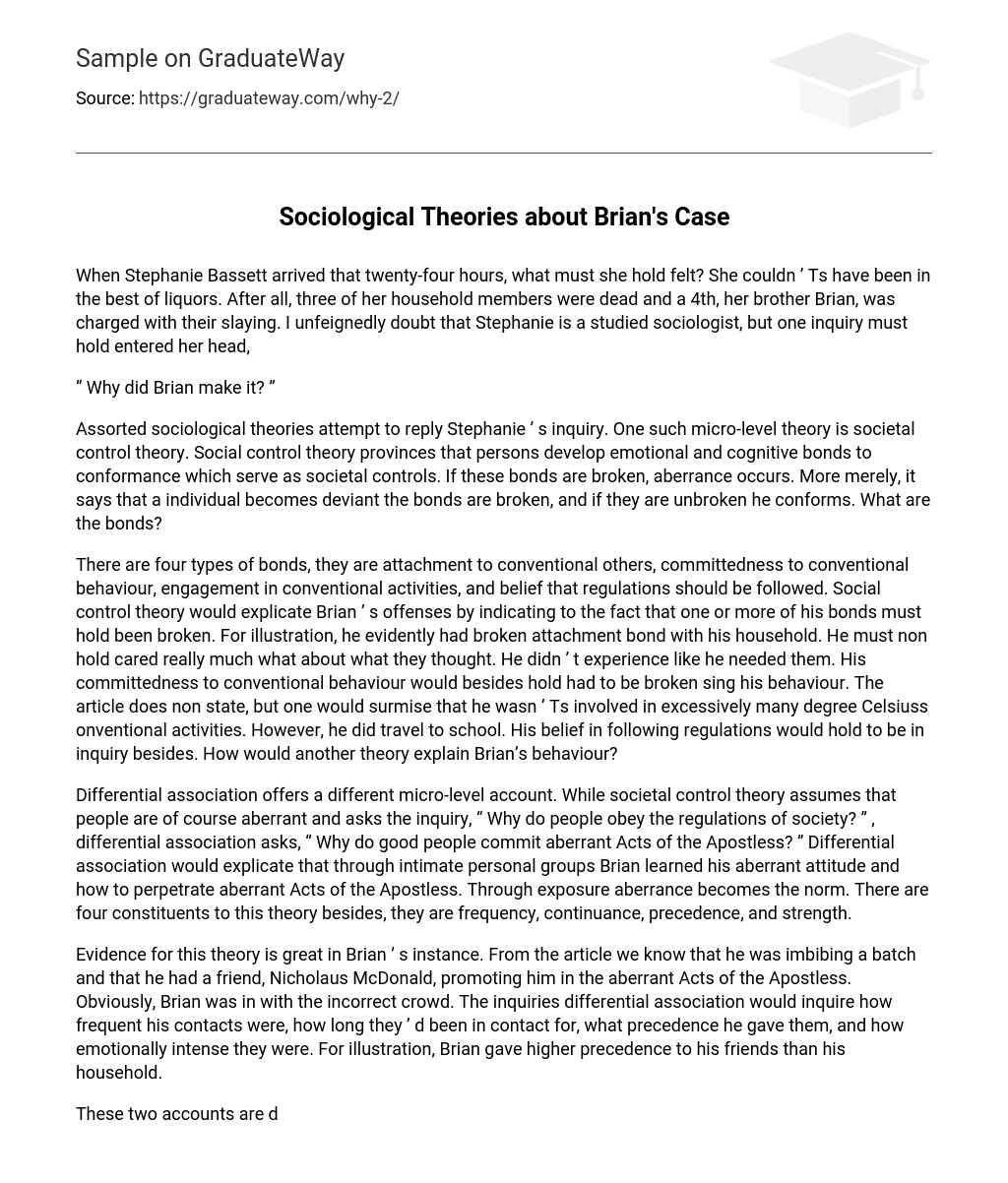When Stephanie Bassett arrived that twenty-four hours, what must she hold felt? She couldn ’ Ts have been in the best of liquors. After all, three of her household members were dead and a 4th, her brother Brian, was charged with their slaying. I unfeignedly doubt that Stephanie is a studied sociologist, but one inquiry must hold entered her head,
“ Why did Brian make it? ”
Assorted sociological theories attempt to reply Stephanie ’ s inquiry. One such micro-level theory is societal control theory. Social control theory provinces that persons develop emotional and cognitive bonds to conformance which serve as societal controls. If these bonds are broken, aberrance occurs. More merely, it says that a individual becomes deviant the bonds are broken, and if they are unbroken he conforms. What are the bonds?
There are four types of bonds, they are attachment to conventional others, committedness to conventional behaviour, engagement in conventional activities, and belief that regulations should be followed. Social control theory would explicate Brian ’ s offenses by indicating to the fact that one or more of his bonds must hold been broken. For illustration, he evidently had broken attachment bond with his household. He must non hold cared really much what about what they thought. He didn ’ t experience like he needed them. His committedness to conventional behaviour would besides hold had to be broken sing his behaviour. The article does non state, but one would surmise that he wasn ’ Ts involved in excessively many degree Celsiuss onventional activities. However, he did travel to school. His belief in following regulations would hold to be in inquiry besides. How would another theory explain Brian’s behaviour?
Differential association offers a different micro-level account. While societal control theory assumes that people are of course aberrant and asks the inquiry, “ Why do people obey the regulations of society? ” , differential association asks, “ Why do good people commit aberrant Acts of the Apostless? ” Differential association would explicate that through intimate personal groups Brian learned his aberrant attitude and how to perpetrate aberrant Acts of the Apostless. Through exposure aberrance becomes the norm. There are four constituents to this theory besides, they are frequency, continuance, precedence, and strength.
Evidence for this theory is great in Brian ’ s instance. From the article we know that he was imbibing a batch and that he had a friend, Nicholaus McDonald, promoting him in the aberrant Acts of the Apostless. Obviously, Brian was in with the incorrect crowd. The inquiries differential association would inquire how frequent his contacts were, how long they ’ d been in contact for, what precedence he gave them, and how emotionally intense they were. For illustration, Brian gave higher precedence to his friends than his household.
These two accounts are different in that societal control assumes Brian is aberrant and differential association assumes he is good but ill-conceived. The theories both have good statements, but really different decisions. Did outside influences cause Brian ’ s aberrance or was it the deficiency of bonds? It all depends on you ’ re point of position.





